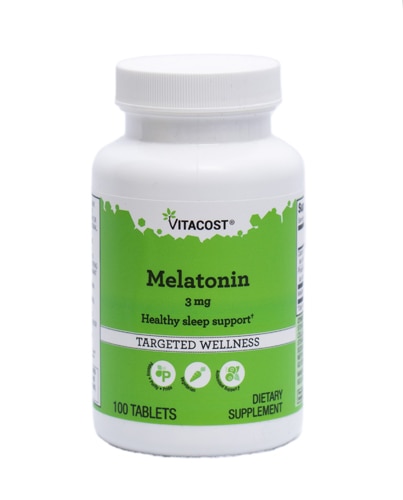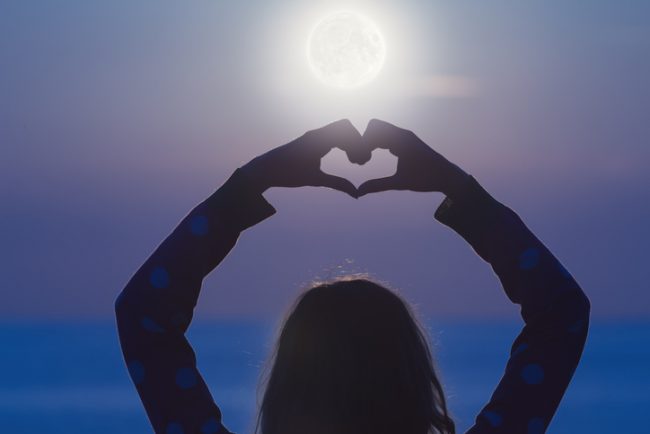The lunar cycle has long served as a source of enchantment, comfort and awe for the human race. Indeed, from full moon harvests to the notion of lycanthropy, it’s played a central role in our lives since the dawn of time.
And it’s no wonder. As the biggest and brightest object in the sky, it’s only natural that we’ve woven stories around its brilliance, studied it extensively and even set foot on its shores.
But did you know that the lunar cycle does more than illuminate the sky and govern the tides? It can also have a profound effect on your behaviors, temperament and physical functions.
Here are 3 ways the lunar cycle may affect your health—and how surrendering to nature might work in your favor:
1. It can influence your menstrual cycle
Women’s menstrual cycles have always been tied to the phases of the moon. Typically lasting twenty-eight days, they reveal how closely connected you are to the natural world.
“The menstrual cycle is the most basic, earthly cycle we have,” Christiane Northrup, M.D. says. “The macrocosmic cycles of nature, the waxing and waning, the ebb and flow of the tides and the changes of the seasons, are reflected on a smaller scale in the menstrual cycle of the individual female body.”
If you pay attention to your hormonal changes, you may begin to note that they’re more in tune with the lunar cycle than you previously realized. As Dr. Northrup asserts, a woman’s intuition and consciousness change as she moves through her cycle: the phase between the beginning of her period and ovulation is a time of inspiration, when she tends to be more extroverted and outgoing. At mid-cycle—when she ovulates and is most fertile—she is at the peak of her creativity. After ovulation, her energy begins to turn inward—she becomes more quiet and reflective. During this time, a woman has more direct access to her unconscious needs and desires, and the feelings and emotions that arise at this time can offer guidance to the deeper issues in her life.
The take away? Use each phase of the lunar (and thus, your menstrual) cycle to your benefit, whether that means tackling a creative project mid-cycle or journaling in the more introspective stage after ovulation. In other words, go with the flow—in more ways than one.
2. It can disrupt your sleep
It may sound like a no-brainer that full moons can lead to sleepless nights—after all, a cloudless, full moon sky looks like a veritable spotlight. “In the days close to a full moon, people take longer to doze off, sleep less deeply, and sleep for a shorter time, even if the moon isn’t shining in their window, a new study has found,” Science reports, affirming that “howling at the moon” is more than a mere old wives’ tale. In fact, another study conducted by the journal Current Biology discovered that the rate of brain activity that denotes a deep, restful sleep “dropped by 30 percent” during full moon nights.
But do you know the why behind it?
A leading factor in how well—or how poorly—you sleep is directly associated with your exposure to light and darkness. Exposure to light fires up a nerve pathway from the retina to the hypothalamus, where a center called the suprachiasmatic nucleus (SCN) instigates signals to other parts of the brain—parts that determine body temperature, control hormones, and, in short, influence whether we feel ready for the day or ready to hit the hay.
The SCN also postpones the release of other hormones like melatonin—a hormone naturally produced in your body that’s regulated by light and darkness. Meaning, the glimmer of a full moon may be lovely, but such intense light delays the trigger of this essential hormone. Interrupted, and that full moon light can go from a beautiful sight to a complete nuisance very quickly.
The take away? Prep for a full moon by investing in a pair of black out curtains that’ll allow you to command the amount of light your bedroom receives. A melatonin supplement may also help support healthy sleep.*
3. It can provoke mood disturbances
It’s no coincidence that “lunatic” is derived from the word “lunar.” Stories of people going mad on full moons abound, while police blotters evidence an uptick in crime on full moon nights. Likewise, emergency rooms see a surge in admissions from psychiatric patients when there’s a full moon, and, according to Psychology Today, “in 19thcentury England, lawyers used the “guilty by reason of the full moon” defense to claim that their “lunatic” clients could not be held accountable for acting under the moon’s influence.”
But is there any credence to these assertions?
Recent research aimed at answering this question hasn’t found a direct correlation between lunar cycles and human behavior. But 81% of mental health professionals believe that the moon has an acute impact on mood and behavior. Many surmise that these alterations occur because of sleep disturbances—the take away for you being able to pay attention to #2. Emotional trouble, after all, could be nothing more than good old fashioned exhaustion.
*These statements have not been evaluated by the Food and Drug Administration. This product is not intended to diagnose, treat, cure or prevent any disease.




